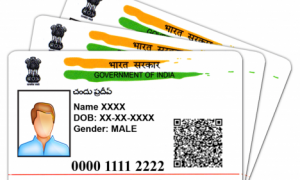In order to keep EVs competitive there is a need to reduce GST on batteries and charging services, FICCI said
To maintain the competitiveness of electric vehicles (EVs), there is an urgent need to reduce the Goods and Services Tax (GST) on EV batteries and charging services, according to Sulajja Firodia Motwani, Chair of the FICCI Electric Vehicle Committee.
Read More: Attention taxpayers! Foreign income and assets must be disclosed before December 31: Report
Call to Rationalise GST Rates for EV Components
Speaking at the sidelines of the FICCI National Conference on EVs, Motwani highlighted the disparity in GST rates, stating:
EVs attract a GST of 5%, but batteries and charging services are taxed at 18%.
“The request is to bring GST on batteries and charging services down to 5% to make EVs more affordable for consumers,” she said.
Reducing the GST on replacement batteries, in particular, could significantly lower costs for consumers.
Enhancing the PM E-Drive Scheme
Motwani also emphasised the need to expand the corpus under the PM E-Drive scheme to accommodate the growing demand for EVs:
“With rising sales, we recommend revisiting incentive amounts to ensure the scheme supports a larger number of vehicles,” she stated.
She called for a review to ensure the budget under the scheme aligns with demand over the next two years.
Affordable Financing Through Priority Sector Lending
Highlighting the importance of financing, Motwani urged policymakers to include EVs in priority sector lending:
“Affordable financing for EVs will help make them cost-competitive, not just for the classes but for the masses,” she said.
Industry’s Role in Accelerating EV Adoption
Anish Shah, FICCI President and Mahindra Group MD & CEO, echoed the need for collective action to increase EV adoption:
With electric four-wheelers accounting for just 1.5% of market penetration in India, Shah remarked, “Much work remains to be done.”
He noted that manufacturers are working on “Born Electric” products designed for mass adoption and emphasised the need for appealing EV products to drive demand.
Shah added that Mahindra would launch its new electric product range later this month. He praised the government for its initiatives, stating, “The government has done its part; now it’s up to the industry to drive the transition to electric mobility.”
The discussions at the conference underscored the need for fiscal reforms, enhanced incentives, and collaborative efforts between the government and industry to make EVs more accessible and competitive in India’s rapidly evolving market.
(With PTI inputs)





































